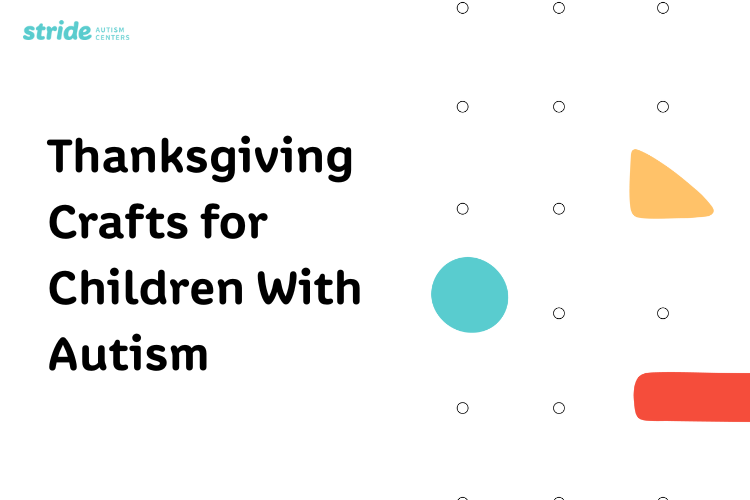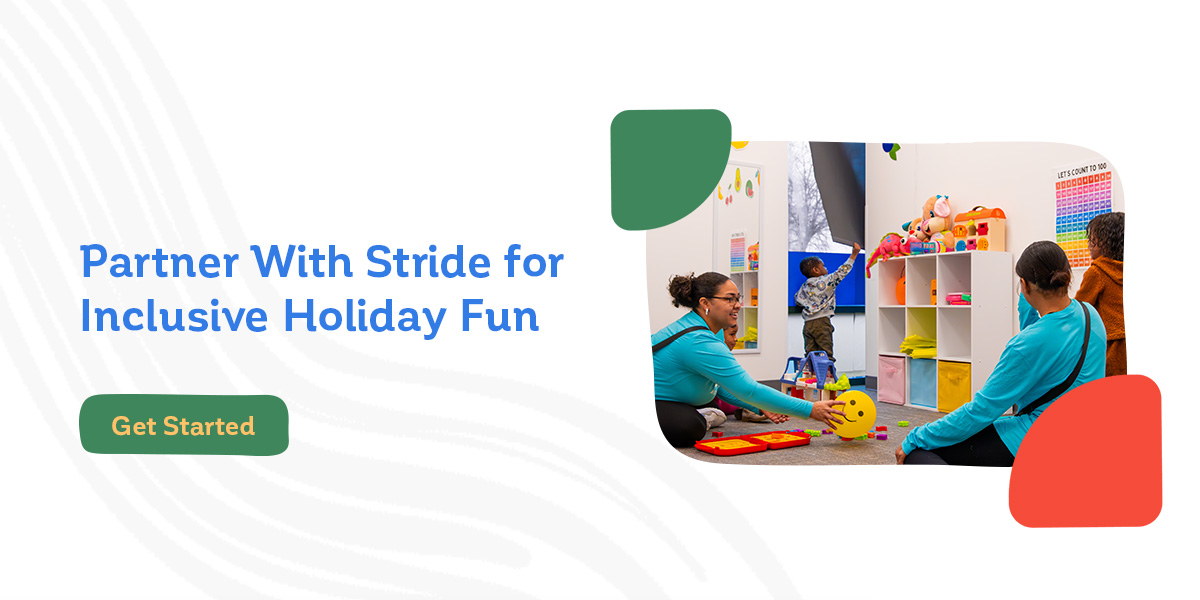Thanksgiving is a time for joy and togetherness — but it’s not without its challenges for children with autism spectrum disorder (ASD). The holiday replaces your child’s predictable, everyday life with an unfamiliar and highly stimulating environment, which can be stressful and overwhelming.
Sensory activities like arts and crafts can help your child during this busy season by offering a structured, calming way to express themselves and process all the excitement safely and comfortably.
3 Sensory-Friendly Thanksgiving Crafts for the Whole Family
Crafts provide a meaningful way to learn about Thanksgiving themes and traditions. These hands-on activities also support multiple ABA therapy goals, such as fine motor skill development, through activities like cutting, drawing, and gluing. Creative projects also support emotional growth, as crafts give your child a tangible result for their efforts.
As the season of gratitude approaches, here are three fun, autism-inclusive Thanksgiving crafts designed to meet the unique needs of young children.
1. Turkey Handprint
This timeless craft allows children to create adorable turkeys that can decorate your home this holiday season. You will need a few supplies, including:
- Washable paint in fun fall colors, like brown, orange, yellow, and red
- Construction paper
- Baby wipes for easy cleanup
- Turkey decorations, including googly eyes and feathers
Have your child paint the fingers and palm of one hand in their favorite autumn colors. Or, help them dip their hand in paint. Then press their entire hand onto the paper and wipe off the paint. Let your child add decorations to transform their handprint into a cheery Thanksgiving turkey.
2. Coffee Filter Turkey
This simple holiday project allows kids to transform a simple coffee filter into a work of art. You will need a standard coffee filter, markers in fall colors, and a wooden clothespin. Let your kiddo color the filter with markers. Then spray it with water to create a unique tie-dye effect reminiscent of turkey feathers.
As the filter dries, draw a fun turkey face onto your clothespin, including eyes and a triangular beak. Then fold your dry coffee filter in half, fluff the feathers, and insert the filter into the top of the clothespin.
3. Gratitude Tree
This activity helps your child learn about the true meaning of Thanksgiving — showing gratitude for the good things in life. For children with autism, a Gratitude Tree can make it easier to express feelings of thankfulness, even if they have trouble sharing these emotions in other ways.
You will need:
- Small branch
- Leaves cut from construction paper
- Markers
- A pot or vase to hold the branch
- Uncooked rice or soil — optional
Choose a branch to serve as your child’s tree. Encourage your kiddo to write or draw things they are thankful for on each leaf — loving parents, a happy home, their favorite toys. Then attach the leaves to the branch and place them in the pot or vase, creating a Gratitude Tree. If your tree needs help staying upright, you can add soil or rice to support it.
Sensory-Friendly Considerations for Thanksgiving Crafts
Every child is unique, especially when it comes to sensory preferences and communication styles. Here are some ways to make Thanksgiving crafts enjoyable and accessible for all children, including those with autism:
- Choices: Offer choices for materials and tools. For example, if your child doesn’t like sticky glue, try using stickers or double-sided tape instead.
- Participation level: Let your child decide how much or how little they want to participate.
- Simple steps: Breaking down each craft into small steps helps kids who may get overwhelmed by too many instructions at once.
- Picture instructions: Provide visual instructions or finished crafts to model each step so they can feel more confident as they work.
- Communication tools: Many autistic kids use AAC (Augmentative and Alternative Communication) devices or PECS (Picture Exchange Communication System) to express themselves. Keep these tools nearby to help your child make choices, ask for help, or share how they feel about the activity.
Partner With Stride for Inclusive Holiday Fun
Celebrate the holidays with confidence and support. Reach out to Stride Autism Centers today and learn how we partner with families like yours throughout the Midwest.







